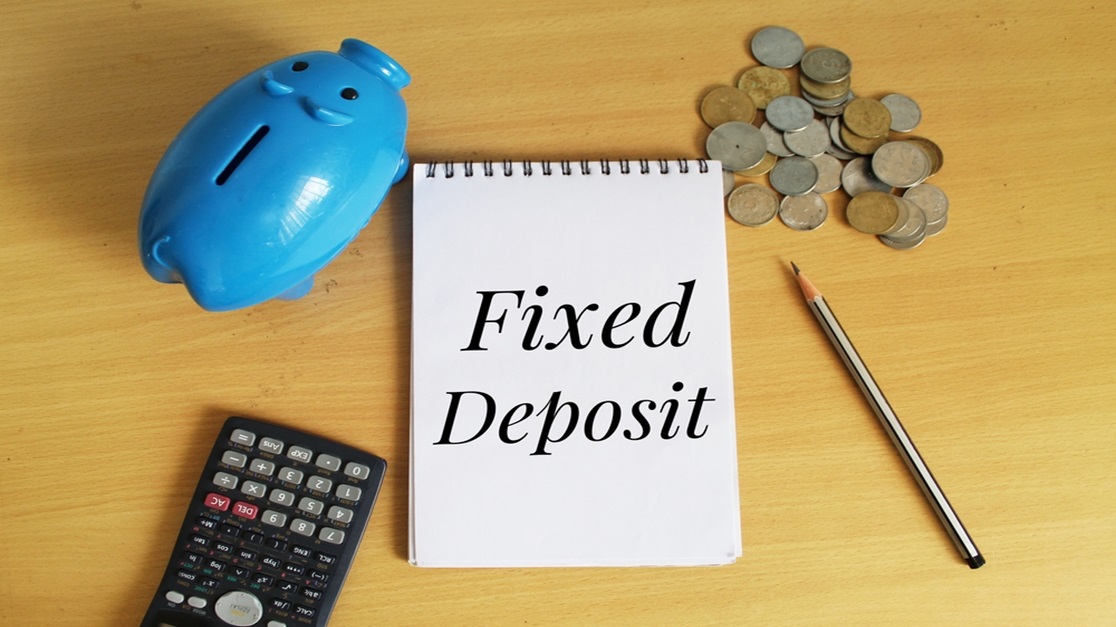The Benefits of Fixed Deposits for Retirees and Seniors Explained
July 02, 2025

To ensure a stable retirement income, many retirees or seniors turn to Fixed Deposits. Fixed deposits provide a safe and reliable investment option for seniors, offering attractive interest rates and guaranteed returns. Additionally, senior citizens are eligible for higher FD interest rates.
In this article, we will explore the benefits of fixed deposits for retirees and seniors, helping you make informed financial decisions for your retirement years.
Why FDs are a Great Choice for Retirement Income?
Here are a few reasons why fixed deposits for retirees is an ideal choice:
Higher Interest Rates
Banks tend to offer higher interest rates of almost 0.5% on FDs for senior citizens compared to regular FDs, ensuring better returns on their investments. The interest rates are locked in at the time of investment and remain unaffected by market fluctuations throughout the chosen tenure.
Stable and Secure Returns
Retirees often prioritise stability and security when it comes to their investments. Fixed deposits offer just that. When you invest in a fixed deposit, you receive a fixed interest rate throughout the tenure of the deposit. This means that regardless of market fluctuations or economic uncertainties, you are assured of steady returns on your investment.
Moreover, FDs are considered one of the safest investment options available. Banks are highly regulated institutions, ensuring the safety of your money. Additionally, most banks offer deposit insurance up to ₹5 lakhs per depositor per bank under the Deposit Insurance and Credit Guarantee Corporation (DICGC). This insurance further protects your investment in case of any unforeseen circumstances.
Regular Income Stream
One of the main concerns for retirees is generating a regular income stream during their retirement years. Fixed deposits provide an ideal solution for this concern. By investing in a senior citizen fixed deposit, individuals above 60 years old can secure a steady source of income.
For example, let's consider Mrs. Sharma, a senior citizen who has invested ₹10 lakhs in fixed deposits for retirees with an interest rate of 7% per annum. She chooses to receive the interest payouts on a monthly basis. As a result, she earns an additional ₹5,833 every month, providing her with a reliable source of income to cover her expenses.
Flexible Tenure Options
Banks generally offer flexible FD tenure options ranging from 7 days to 10 years. This allows you to choose the duration of your deposit based on your financial goals and requirements. Whether you are looking for short-term or long-term investments, there is usually an option available to suit your needs.
Example:
Let's say Mr. Verma is planning for his daughter's wedding in 3 years and wants to accumulate enough funds for the occasion. He than chooses decides to invest ₹5 lakhs in an FD with an interest rate of 6% for a tenure of three years. At maturity, his investment will grow to ₹5,94,377, providing him with the necessary funds for his daughter's wedding.
Liquidity and Loan Facilities
While fixed deposits for retirees are known for their stability and guaranteed returns, they also offer liquidity options in case of emergencies or unforeseen expenses. Most banks allow premature withdrawal of fixed deposits, although this may incur a penalty. However, it's important to note that the penalty varies between banks, so it's crucial to understand the terms and conditions before investing.
Example:
For instance, if Mr. Kumar requires funds for his medical treatment but doesn't want to break his fixed deposit of ₹3 lakhs with an interest rate of 7%, he can opt for a loan against his deposit. By pledging his fixed deposit as collateral, he can obtain a loan at a lower interest rate compared to other types of loans.
Tax Benefits for Senior Citizens
Another advantage of senior citizen fixed deposits is the tax benefits available to seniors. Senior citizens are eligible to claim TDS exemption Under Section 80TTB of the Income Tax Act, of up to ₹50,000 on the interest earned from fixed deposits with banks and post offices. This deduction applies to interest earned from savings accounts as well. For FY 2025-26, the current TDS exemption limit has been hiked to ₹1 lakh for senior citizens.
Final Thoughts
Fixed deposits offer numerous benefits for retirees and seniors looking for a stable and reliable investment option. From providing regular income streams to offering flexible tenure options and tax benefits, they are a popular choice among individuals planning for their retirement years. To explore the benefits of fixed deposits further and find the best options tailored to your needs, visit Ujjivan SFB. Start securing your retirement income today and enjoy the peace of mind that comes with financial stability.
Disclaimer:
The contents herein are only for informational purposes and generic in nature. The content does not amount to an offer, invitation or solicitation of any kind to buy or sell, and are not intended to create any legal rights or obligations. This information is subject to updation, completion, amendment and verification without notice. The contents herein are also subject to other product-specific terms and conditions, as well as any applicable third-party terms and conditions, for which Ujjivan Small Finance Bank assumes no responsibility or liability.
Nothing contained herein is intended to constitute financial, investment, legal, tax, or any other professional advice or opinion. Please obtain professional advice before making investment or any other decisions. Any investment decisions that may be made by the you shall be at your own sole discretion, independent analysis and evaluation of the risks involved. The use of any information set out in this document is entirely at the user’s own risk. Ujjivan Small Finance Bank Limited makes no representation or warranty, express or implied, as to the accuracy and completeness for any information herein. The Bank disclaims any and all liability for any loss or damage (direct, indirect, consequential, or otherwise) incurred by you due to use of or due to investment, product application decisions made by you on the basis of the contents herein. While the information is prepared in good faith from sources deemed reliable (including public sources), the Bank disclaims any liability with respect to accuracy of information or any error or omission or any loss or damage incurred by anyone in reliance on the contents herein, in any manner whatsoever.
To know more about Ujjivan Small Finance Bank Products Visit:"https://www.ujjivansfb.in"
All intellectual property rights, including copyrights, trademarks, and other proprietary rights, pertaining to the content and materials displayed herein, belong
to Ujjivan Small Finance Bank Limited or its licensors. Unauthorised use or misuse of any intellectual property, or other content displayed herein is strictly prohibited and the same is not intended for distribution to, or use by, any person in any jurisdiction where such distribution or use would (by reason of that person’s nationality, residence or otherwise) be contrary to law or registration or would subject Ujjivan Small Finance Bank Limited or its affiliates to any licensing or registration requirements.
FAQs
1. What is the eligibility criteria for opening a senior citizen fixed deposit?
To open a senior citizen fixed deposit, you typically need to be 60 years or older. However, age requirements may vary between banks.
2. Can I open a joint senior citizen fixed deposit account?
Yes, many banks allow joint accounts for senior citizen fixed deposits. This can be beneficial if you want to invest with a spouse or family member.
3. Is the interest earned from senior citizen fixed deposits taxable?
Yes, the interest earned from senior citizen fixed deposits is taxable. However, senior citizens can avail tax benefits under Section 80TTB of the Income Tax Act.
4. Can I withdraw my fixed deposit before maturity?
Yes, most banks allow premature withdrawal of fixed deposits. However, this may incur a penalty, and the exact terms and conditions vary between banks.
5. Are senior citizen fixed deposits safe?
Yes, senior citizen fixed deposits are considered safe as they are offered by regulated banks and are often backed by deposit insurance up to ₹5 lakhs per depositor per bank under DICGC.
6. Can I take a loan against my senior citizen FD?
Yes, many banks allow loans against senior citizen FD. By pledging your deposit as collateral, you can avail a loan at a lower interest rate compared to other types of loans.
7. What happens if I pass away during the tenure of my fixed deposit?
In the unfortunate event of the depositor's demise, the nominee mentioned in the account details will be able to claim the funds from the fixed deposit account.
8. Can I change the tenure of my fixed deposit after opening the account?
No, you cannot change the tenure of your fixed deposit once it has been opened. However, you can close the existing deposit prematurely and open a new one with a different tenure.
9. Can I open multiple senior citizen FDs?
Yes, you can open multiple senior citizen fixed deposits with different banks or within the same bank.
10. What other investment options are available for retirees?
Apart from fixed deposits, retirees can explore other investment options such as mutual funds, Senior Citizen Savings Scheme (SCSS), and Post Office Monthly Income Scheme (POMIS).
Latest Blogs

ITR-1 (Sahaj) Restrictions: Income Sources Not Allowed & Filing Rules
With just a few days left before the 15 September 2025 deadline for filing Income Tax Returns (ITRs) for Assessment Year (AY) 2025-26, many taxpayers are rushing to submit their forms online.

GST Rate Cut on Electronics: What It Means for Consumers and Retailers
India’s Goods and Services Tax (GST) system has entered a new era with the rollout of GST 2.0, effective from September 22, 2025.

Banking Safety Guide: How to Avoid QR Code Frauds While Making Payments
India’s love for QR code payments has made transactions lightning-fast, but also opened a new front for cybercriminals.

Scam Alert! Phishing, Vishing, and Smishing Can Drain Out Your Finances
Digital banking in India has transformed the way we manage money.

India’s New GST Reform Bill: What GST 2.0 Means for You
India’s indirect tax system is entering a landmark new phase.





